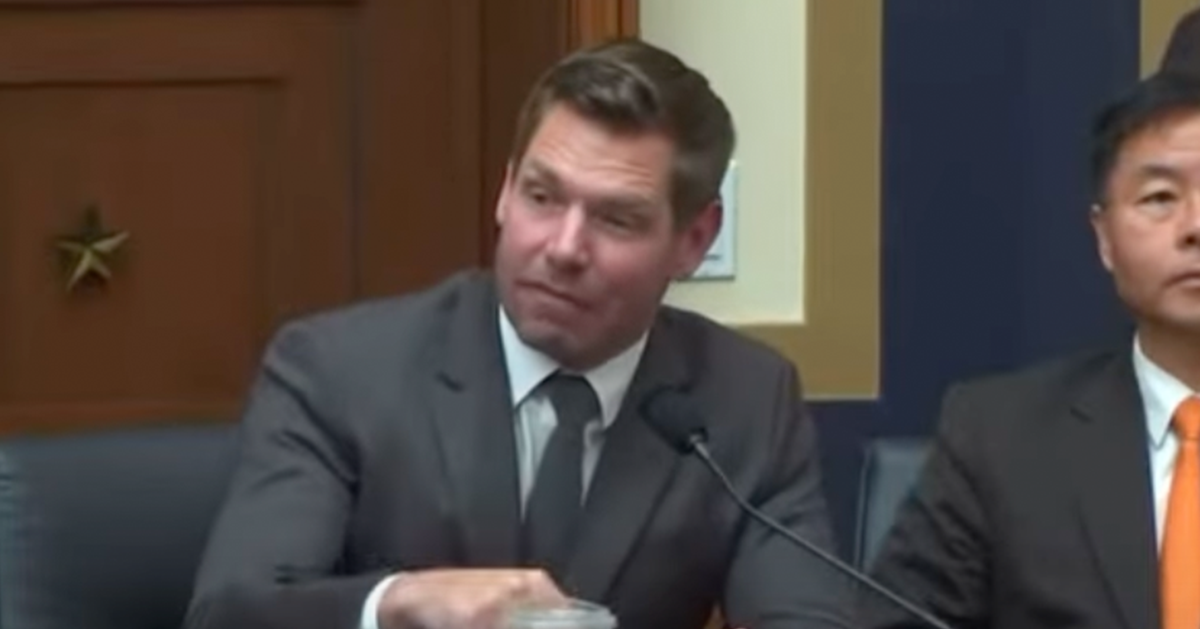Trump Lawyers Seek to Disqualify Fulton Prosecutor Over Alleged Bias
Donald Trump's legal team is calling for the removal of Fulton County District Attorney Fani Willis, alleging racial bias and misconduct in the high-profile case involving Trump and 18 other defendants.
Trump’s lawyers have filed an appeal in Georgia to disqualify Willis from the case, claiming that her actions and statements have violated ethical standards and shown racial prejudice, Breitbart reported.
Trump’s Legal Team Appeals for Removal
Lawyers for former President Trump have initiated an appeal in Georgia to disqualify Fulton County District Attorney Fani Willis from prosecuting the case involving Trump and 18 co-defendants. The appeal follows accusations that Willis demonstrated "racial animus" in her handling of the case, which involves several high-profile figures.
The appeal focuses heavily on a speech Willis gave in January at a predominantly black church, where she allegedly accused the defendants of racism. Trump’s legal team claims that she strategically designed this speech to bias the proceedings against Trump and his co-defendants.
According to the filing, Willis’s speech included references to racial terms and aimed to influence public perception by suggesting that the defendants, who are primarily white Republicans, held racist views.
Context of Willis’s Alleged Misconduct
The controversy over Willis's comments began when Mike Roman, one of Trump's co-defendants, accused her of having a romantic relationship with prosecutor Nathan Wade and engaging in improper financial activities. In response, Willis delivered a speech that, according to Trump’s legal team, further inflamed tensions and reinforced racial stereotypes.
Trump’s attorneys have since joined Roman's criticism, arguing that Willis's remarks were intentionally misleading and designed to distract from her own alleged misconduct. They contend that she specifically used pronouns like "them" and "they" to target "white male Republicans," including Trump and his co-defendants.
The appeal argues that Willis's statements were not just a careless choice of words but a deliberate tactic to create a biased narrative. "The purpose was plain: to obscure her misconduct by falsely accusing the defense of racism," Trump's legal team stated in the filing.
Impact of Willis’s Comments on Media Coverage
The appeal contends that Willis aimed to generate widespread media coverage to prejudice the defendants. Trump's lawyers assert that she designed her comments to violate their clients' rights to a fair trial, including the presumption of innocence and due process.
"Willis knew what she was doing and got precisely the reaction she wanted: the overwhelming media coverage of her false and pernicious subterfuge would slander the defendants before the entire nation," the appeal claims. The filing describes Willis’s actions as a violation of the Georgia Rules of Professional Conduct and characterizes them as "calculated and egregious."
In March, Fulton County Judge Scott McAfee ruled that Willis could continue overseeing the case only if Nathan Wade resigned. Wade eventually stepped down, allowing Willis to remain in her position. However, Judge McAfee permitted Trump's legal team to appeal his ruling and seek Willis's removal from the case.
Legal Grounds for the Appeal
The appeal argues that Willis's actions go beyond a simple misstep, claiming that her conduct has compromised the integrity of the judicial process. Trump's attorneys assert that the district attorney's comments were crafted to provoke a specific reaction and create a hostile environment against the defendants.
"Willis flagrantly violated the Georgia Rules of Professional Conduct, and her forensic misconduct was calculated and egregious," the filing reads, underscoring the gravity of the accusations against her. The appeal suggests that her actions do not align with her responsibilities as a prosecutor and that they undermine the defendants' rights.
Trump’s legal team included the appeal as part of a broader strategy to challenge the legitimacy of the charges and the fairness of the proceedings. By focusing on Willis's alleged misconduct, Trump's attorneys aim to shift the narrative and cast doubt on the prosecution's motives.
Possible Outcomes and Implications
If successful, the appeal could significantly change how the case is prosecuted, potentially altering its course. Removing Willis from the case would likely reassign responsibilities and impact the strategies of both the defense and the prosecution.
Trump’s legal team argues that the district attorney's alleged bias has already tainted the case, making a fair trial impossible under her leadership. They believe that removing Willis is essential to ensuring an impartial legal process.
However, the appeal faces substantial legal hurdles, as it challenges the authority and discretion of a sitting district attorney. The court's decision on the matter will likely set a precedent for handling similar cases in the future, particularly when accusations of bias and misconduct are involved.
Broader Implications for Judicial Ethics
The appeal also raises important questions about the role of prosecutors and the ethical standards they must uphold. If authorities find that Willis violated ethical rules, it could prompt further scrutiny of other prosecutorial conduct in politically charged cases.
For now, everyone is watching the Georgia appeals court as it considers whether to remove Willis from the case. The outcome could have far-reaching consequences, not just for Trump and his co-defendants, but for the broader legal landscape.
The case continues to attract significant media attention, and the appeals court's ruling will likely be a major development in what has already been a highly controversial legal battle.





